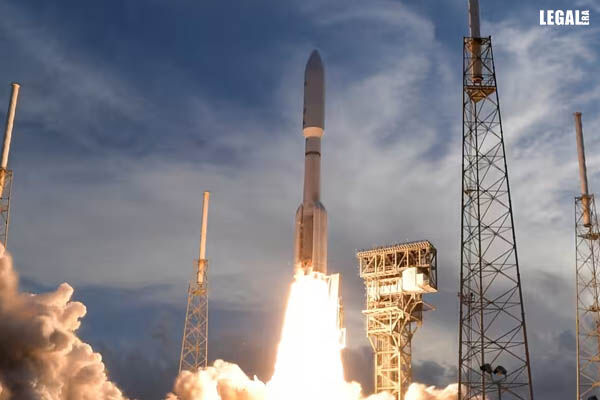
Amazon Sends Off 27 Kuiper Internet Satellites
The long-delayed deployment of an internet-from-space network will rival SpaceX’s Starlink
Amazon has launched 27 satellites for its Kuiper Systems broadband internet constellation into space from Florida.
The satellites are the first of 3,236 that Amazon plans to send into low-Earth orbit for Project Kuiper, a $10 billion effort unveiled in 2019 to beam broadband internet globally for consumers, businesses and governments.
For years, SpaceX had its powerful presence in the Starlink business.
Sitting atop an Atlas V rocket from the Boeing and Lockheed Martin joint-venture United Launch Alliance (ULA), the batch of 27 satellites was lofted into space at 7 pm EDT from the rocket company’s launch pad at the Cape Canaveral Space Force Station.
Kuiper is Amazon’s biggest bet, competing with Starlink and global telecommunications providers AT&T and T-Mobile.
The service will be a boon to rural areas where connectivity is sparse or absent.
The mission to deploy the satellites was delayed for over a year. Amazon faces a deadline set by the U.S. Federal Communications Commission to deploy half its constellation (1,618 satellites) by mid-2026. However, due to the slow start, it might seek an extension.
Amazon is soon expected to publicly confirm the initial contact with all the satellites from its mission operations center in Redmond, Washington.
The company stated that if everything went as planned, it could “begin delivering service to customers later this year.”
ULA could, ULA CEO Tory Bruno, CEO of ULA, stated that they could launch five more Kuiper missions this year.
In a 2020 FCC filing, Amazon said it could begin service in certain northern and southern regions at 578 satellites, with the coverage expanding toward Earth’s equator as it launches more satellites.
The web services and e-commerce giant’s Project Kuiper is an ambitious foray into space.
Jeff Bezos, Amazon’s Executive Chairman, was confident that Kuiper could compete with Starlink.
He stated, “There’s insatiable demand for the internet. There’s room for lots of winners. I predict Starlink will continue to be successful, and Kuiper will also be successful.”
Referring to low-Earth orbit, Bezos added, “It will primarily be a commercial system, but, undoubtedly, there will be defense uses for these LEO constellations.”
In 2023, the company launched two prototype satellites, before de-orbiting them in 2024. However, it was quiet about the program’s development until it announced its first Kuiper launch plans.
IT had revealed its Kuiper consumer terminals, an LP vinyl record-sized antenna that communicates with Kuiper satellites overhead, and a smaller terminal, the size of its e-book Kindle device.
The company expects to make tens of millions of devices for under $400 each.
In 2022, Amazon booked 83 rocket launches from ULA, France’s Arianespace and Blue Origin, Bezos’ space company, snagging the industry’s biggest-ever launch deal as it prepared to begin Kuiper deployment.
Meanwhile, Elon Musk’s SpaceX has an edge as a satellite operator and launch company with its reusable Falcon 9. It has over 8,000 Starlink satellites in orbit since 2019, marking its 250th dedicated launch recently.
Its pace has hastened to at least one Starlink mission per week, each rocket with roughly two-dozen satellites on board to expand the network’s bandwidth and replace the outdated ones.
This has helped the company amass over 5 million internet users across 125 countries. It has upended the global satellite communications market and wooed military and intelligence agencies seeking Starlink and its manufacturing line for sensitive national security programs.